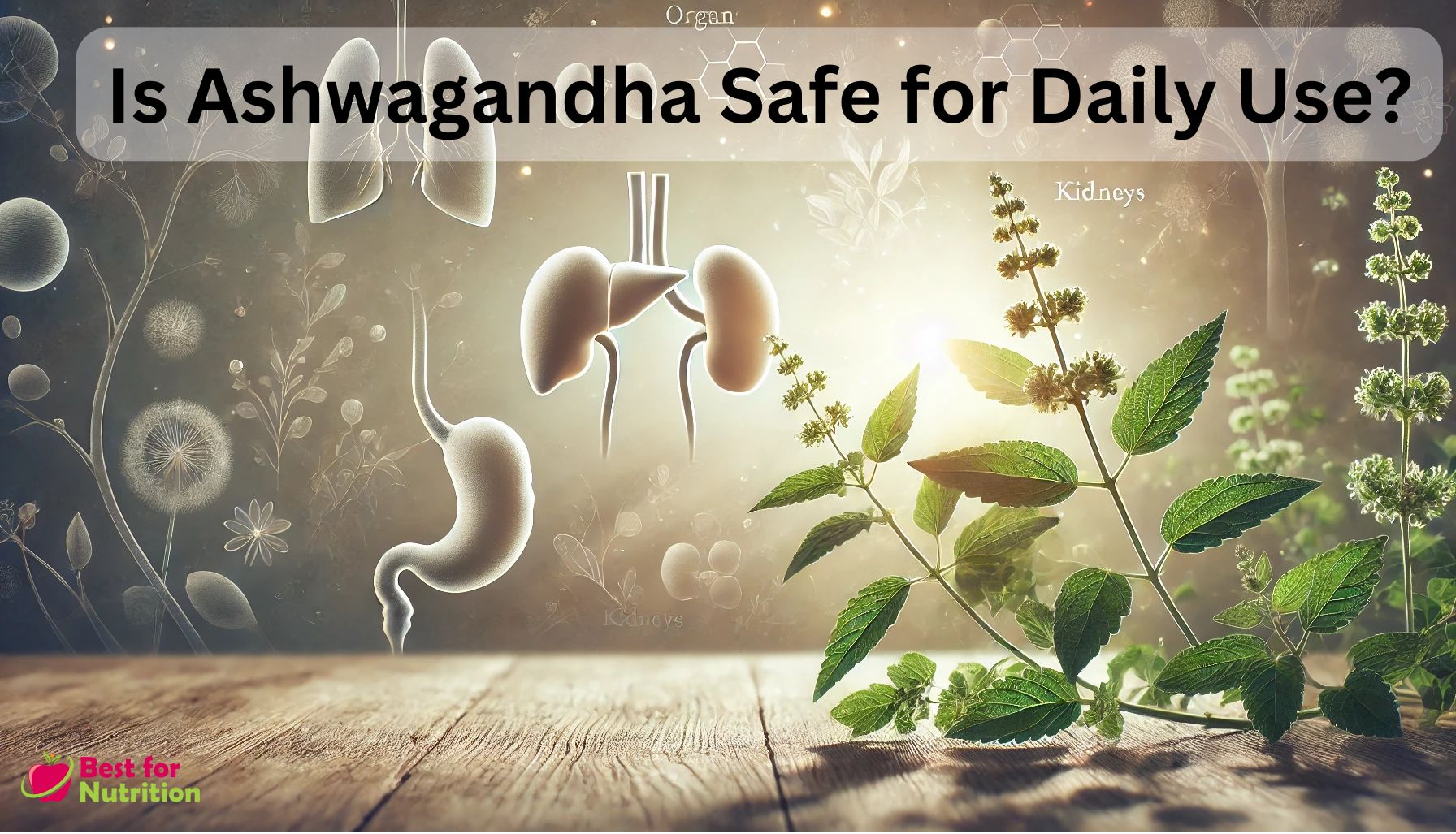With the increasing popularity of ashwagandha as a natural supplement for stress relief, sleep support, and overall well-being, more people are turning to it for its health benefits. However, like any supplement, questions and concerns arise about its potential side effects, especially for those who are new to using it or have specific health conditions.
We created this FAQ section to address the most common questions about the potential negative effects of ashwagandha. Whether you’re concerned about how it may impact your heart, skin, or overall health, we aim to provide clear, evidence-based answers tailored to your needs. Our goal is to help you make informed decisions about using ashwagandha safely and effectively.
If you’re curious about whether ashwagandha has any side effects or if it could affect certain areas of your health, keep reading to learn more.
Frequently Asked Questions
Does Ashwagandha Have Negative Side Effects?
Ashwagandha is generally considered safe for most people when taken in recommended doses. However, like any supplement, it can cause some side effects, particularly if used improperly or in higher-than-recommended doses. The herb’s adaptogenic properties make it beneficial for stress management, but it’s essential to understand its potential side effects.
Some common side effects of ashwagandha include:
- Gastrointestinal issues: Some people may experience stomach upset, diarrhea, or nausea, especially if they take too much ashwagandha at once or on an empty stomach.
- Drowsiness: Since ashwagandha can help promote relaxation, it might cause drowsiness or excessive sleepiness in some individuals, particularly when taken during the day.
- Lower blood pressure: Ashwagandha is known to reduce blood pressure, which could be a concern for those who already have low blood pressure or are taking medications for hypertension.
While these side effects are generally mild and temporary, it’s essential to follow recommended dosage guidelines. Additionally, if you’re pregnant, breastfeeding, or have an autoimmune disease, it’s advisable to consult with a healthcare provider before taking ashwagandha.
Summary: Ashwagandha is safe for most people when taken at the correct dose, but it may cause mild side effects like stomach upset, drowsiness, or lower blood pressure (1).
Does Ashwagandha Have Negative Side Effects on the Heart?
Ashwagandha is often praised for its ability to support overall heart health, but questions remain about potential negative effects on the heart. For most people, ashwagandha is beneficial to cardiovascular health, thanks to its anti-inflammatory and antioxidant properties, which help reduce oxidative stress—a major contributor to heart disease.
However, ashwagandha may impact heart function in certain situations:
- Lowered blood pressure: Ashwagandha is known to lower blood pressure, which could be a problem for individuals already taking blood pressure medications or those with naturally low blood pressure. Too much ashwagandha could cause blood pressure to drop too low, potentially leading to dizziness or fainting (2).
- Heart palpitations: In rare cases, some people may experience increased heart palpitations, especially if they are sensitive to the herb or taking high doses. This side effect is uncommon, but it’s something to be mindful of if you have existing heart conditions.
If you have concerns about your heart health, it’s always best to consult a healthcare provider before incorporating ashwagandha into your routine. They can provide personalized guidance based on your medical history.
Summary: Ashwagandha generally supports heart health, but it may lower blood pressure or cause palpitations in rare cases. Those with heart conditions or on blood pressure medication should seek medical advice before use.
Does Ashwagandha Have Negative Side Effects on the Skin?
When it comes to skin health, ashwagandha is known more for its benefits than its downsides. The herb is rich in antioxidants, which help protect the skin from free radical damage and can reduce inflammation, making it potentially beneficial for those dealing with acne or other inflammatory skin conditions.
However, there are some potential negative effects on the skin for certain individuals:
- Allergic reactions: Some people may experience an allergic reaction to ashwagandha, which could manifest as skin rashes, itching, or swelling. While these reactions are rare, they are possible, particularly if you have a sensitivity to herbal supplements.
- Hormonal effects: Ashwagandha can influence hormone levels, which might affect the skin indirectly. For example, if you have a hormonal imbalance that contributes to acne or other skin issues, ashwagandha could either improve or worsen your skin condition depending on how your body reacts.
If you have sensitive skin or are prone to allergies, it’s a good idea to start with a small dose of ashwagandha and monitor your body’s response. If you notice any adverse skin reactions, discontinue use and consult a healthcare provider.
Summary: Ashwagandha generally benefits the skin due to its antioxidant and anti-inflammatory properties. However, allergic reactions and hormonal effects are possible in rare cases.
Are There Other Potential Negative Side Effects of Ashwagandha?
In addition to the side effects mentioned above, ashwagandha could have other minor or rare side effects that are important to consider, especially if you have certain medical conditions or are taking specific medications:
- Thyroid function: Ashwagandha can boost thyroid hormone production, which is beneficial for those with hypothyroidism but could be problematic for individuals with hyperthyroidism or those on thyroid medication. If you have a thyroid condition, it’s essential to monitor your thyroid levels while taking ashwagandha.
- Autoimmune conditions: Ashwagandha stimulates the immune system, which may worsen symptoms in individuals with autoimmune diseases like lupus, multiple sclerosis, or rheumatoid arthritis. If you have an autoimmune disorder, consult with your healthcare provider before using ashwagandha.
- Interactions with medications: Ashwagandha may interact with certain medications, including immunosuppressants, sedatives, or thyroid medication. It’s essential to speak to a doctor if you’re on any medication to avoid potential drug interactions.
Summary: Ashwagandha may affect thyroid function, stimulate the immune system, and interact with certain medications. Consult with a healthcare professional if you have specific medical conditions or are taking medications (3).
Final Thoughts
Ashwagandha is generally safe for most people and has a range of health benefits, from reducing stress to promoting better sleep and improving heart health. However, like any supplement, it’s important to be aware of potential side effects. Mild issues like stomach upset and drowsiness may occur, but serious side effects are rare and usually linked to improper use or existing medical conditions.
If you are concerned about any potential negative effects on your heart, skin, or other areas of your health, it’s always a good idea to consult with a healthcare provider, especially if you have any pre-existing conditions or are on medication. This will ensure you’re using ashwagandha in a way that’s safe and effective for your unique needs.
For more information on high-quality ashwagandha supplements, check out our page on the best ashwagandha supplements to find the right product for you.





